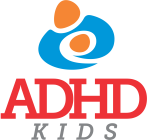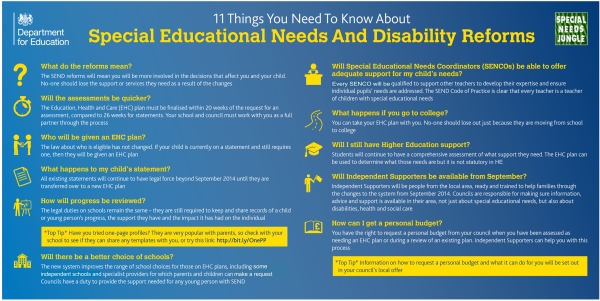The new SEN Code of Practice was launched in July. The new reforms mean that instead of being assessed for a Statement of Educational Needs, every child with a disability can apply for an Educational Health and Care Plan. Following a co-ordinated single assessment process, the new EHC Plan sets out in one place all the assistance to which a child is entitled, focusing on outcomes from birth to adulthood. The process is intended to be a child- and family-focused system.
According to Children’s Minister Edward Timpson, “From September, every council must publish a local offer – clear information explaining the support they give to children with SEN or disability in their area. It has to include information from schools about the teaching and services they offer, and out of area support for the most complex or rare needs where they cannot be met locally.” This new legislation aims to make available more support to help parents and the millions of children with SEN, as well as those with lower levels of special educational need.
One of the biggest changes is that the School Action and School Action Plus categories of special educational needs have been abolished, allegedly to prevent poor behaviour being wrongly categorized as SEN. Only time will tell how this will affect those children whose needs were not previously “serious” enough for a statement. Budgets have been set aside for transferring children from Statements of Needs to the new EHC plans in a staged process, and local authorities have been provided with extra funding to help them deliver these reforms successfully. Money has also been allocated to help families who need help to navigate the SEN system.
The Children’s Minister will continue to oversee the new scheme, surveying parents, monitoring councils, and working with Ofsted on a tough accountability framework. This new legislation could introduce real cultural change. Parents who have EHC plans up and running in pathfinder areas (where it was trialled) have described their experiences as hugely positive – with plans designed around their family needs and focusing on their child’s strengths, not their limits. By combining expertise and parent/family experiences, this reform may well transform the lives of the most vulnerable children and their families.
Click the image below to see more about the new SEN Code of Practice (thanks to Special Needs Jungle for the use of this)


